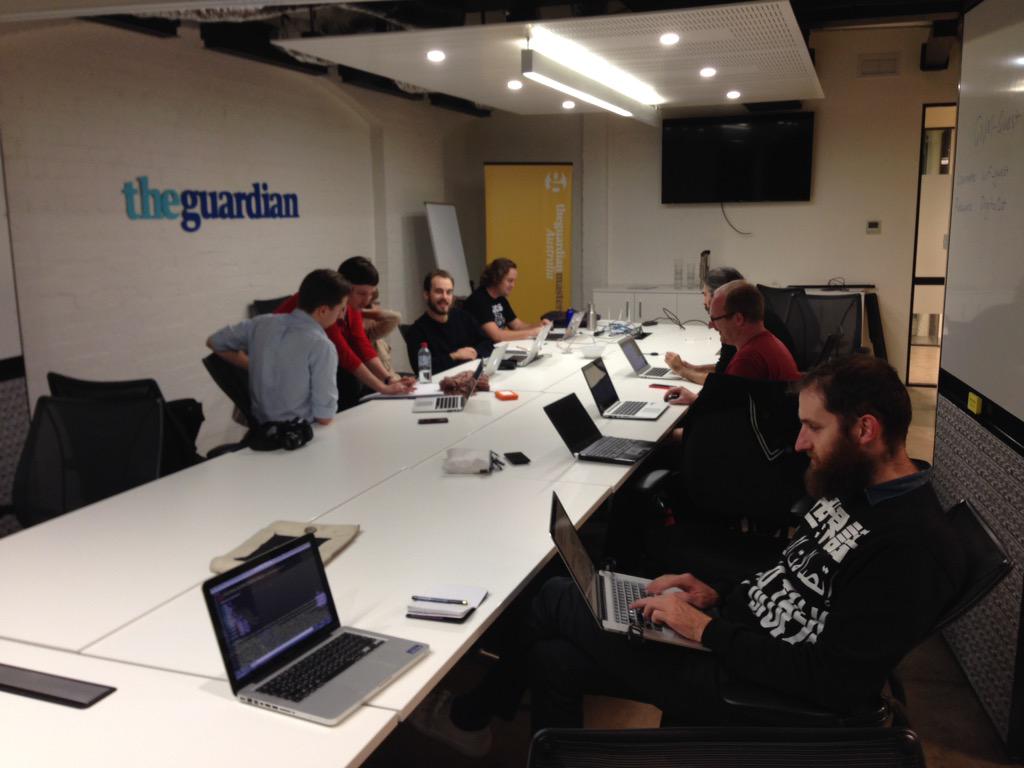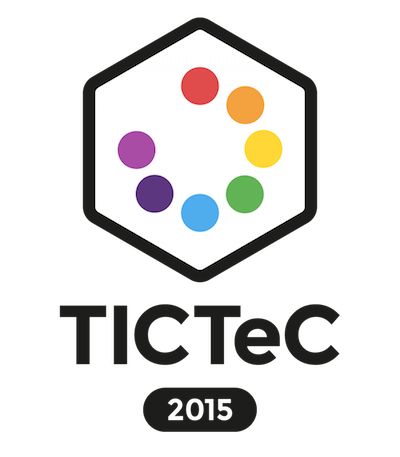
Since the beginning of this year the core team at the OpenAustralia Foundation has been getting together for a day every quarter to make a plan for the upcoming 3 months. As our team grows (we’re now 3 full time people) these kinds of occasional but regular planning sessions help to keep us working well together.
On Monday 22 June we got together in person in Sydney to plan out what we would do from the beginning of July to the end of September this year.
This is also a good opportunity for us all to take a step back and look at our big picture priorities.
This is roughly how we structured the planning session:
- We looked back at our previous 3 months and wrote down every big thing we’d achieved or actively put on hold. Had each item been in our plan for the previous 3 months? What deviated from the plan and why? What was good about it? What was bad about it? – This wasn’t supposed to be a debrief or review. The purpose of looking at the last 3 months was purely about helping focus and seeing what affected our plan for the next 3 months.
- Then, we created our big picture wish list for what we’d all like to work on next. This was a mixture of things that were in our plan for the year as well things that we individually or as a group feel passionate about. We’re firm believers in taking advantage of our passions and energy when the mood strikes. So, sometimes we juggle things to keep those passions alive. It’s important to us that working at the OpenAustralia Foundation doesn’t just become “a job”.
- Then, we moved items from that wishlist to a 3 month calendar very roughly estimating the time for each thing, taking into account any holidays that we each had booked and who would likely work on what. This is the stage that generated the most discussion and the most difficult choices.
And now to the plan…
A plan for what to work on also includes what not to work on. We decided not to work on Right To Know over July – October to let the addition of NSW and NT to Right To Know “bed in”. Our administration and support for the site will continue as normal and we expect to learn a lot about the freedom of information laws in each state and specific issues that people run into as they make requests.
July
A Federal Election later in the year?
There’s a reasonable chance that we will have a Federal election later this year and so we took the opportunity to start thinking about what we might specifically do that’s focused on the election. In recent Federal elections we’ve run the electionleaflets.org.au site which has taken the majority of our time in the run up to the election. Most of that was on publicising the site through the mainstream media, partnering with news organisations, the National Library of Australia and using social media to get the message out, and targeting leaflet collectors through local libraries across the country.
As a result of the new unsustainable effort it requires at each election we decided earlier this year that we would be winding down our support for Election Leaflets. We do plan to write more about this soon.
So, at the next federal election we’re looking to be putting our support behind another project. Instead of starting something new we’d like to support an already existing and successful community-led project. We have a project in mind and we’ll be contacting them soon to see if they’d like to work with us.
Monthly meetups
For the last year we’ve been hosting a monthly meetup in Sydney with the aim of nurturing and supporting the burgeoning civic technology community in Australia. It’s been a very low-key event, with good people sharing ideas, company and support over a few beers.
Starting in July we aim to experiment a little with the format of these monthly meetups with the aim of increasing the number of people who build and start small civic technology projects. So, to start with, we’re going to add lightning talks to the pub meet to give people a platform to talk about the cool things they’ve made.
We would also love for there to be monthly meetups in every major city in Australia covering the kinds of work that we do as well as the broader civic tech area.
Specifically, in July we plan to do our bit to help get a meetup going in Brisbane.
Making morph.io even better
For a good chunk of July, the plan is that Henare and Matthew will focus on morph.io. There have been some big changes to the morph.io backend which runs scrapers and it’s important that Henare is up to speed with how that all works now so that he’s able to effectively provide support for our growing user base.
Also, we’re going to add a feature to give people the option to financially support morph.io through a monthly subscription with the higher scales offering priority technical support. Just for fun (and a little social motivation) we’re going to make this public by putting little badges on peoples’ public morph.io profiles.
We’re also going to do a big push on the morph.io documentation especially the “how to get started” kind of documentation. This will include highlighting particular libraries for each language that we recommend. We will also see if we can get other open source scraping libraries to mention us in their documentation to get the word out to more people about the open source morph.io platform.
Renegotiating commercial PlanningAlerts API contracts
As you are probably aware we charge for commercial access to the PlanningAlerts API. Most contracts are now up for renegotiation. We plan to start this process with our commercial clients in the middle of July. The purpose of course for us is to increase our fees (our coverage has increased, most clients’ usage has increased) so that we can continue to build and maintain services like PlanningAlerts for everyone.
Upgrading and migrating servers
We’ve had plans afoot since the beginning of the year to upgrade and change our server infrastructure. We need to do this because the version of Ubuntu we’re running on our main server is at the end of its life and we want to take the opportunity to move away from one monolithic server which runs the majority of our sites to a larger set of smaller virtual machine (VMs) which run individual sites.
We’ve hit a big delay along the way to do with our hosting provider building the capacity to provision multiple smaller VMs. So, instead we plan to take an alternative approach if its possible of separately upgrading our monolithic server first followed by the migration to smaller VMs later in the year. The upgrade needs to happen as soon as possible. Hopefully we can make it happen in July.
August
Charging commercial users of PlanningAlerts
There are a large number of real-estate agents and property developers who use the free PlanningAlerts service to help them do their job. We think this is a good thing. For those people who use PlanningAlerts to help get them an income we would like to find ways to get those people to financially support PlanningAlerts.
That’s why in August we plan to start charging people who have 3 or more email alerts setup in PlanningAlerts. For community groups or non-commercial individual users who have 3 or more alerts they will still be able to get that for free if they contact us.
Scraping course and workshop
At the beginning of September we plan to run a scraping course and workshop. We will start planning and organising this in the beginning of August.
September
The month will start by holding the scraping course and workshop.
PlanningAlerts – write to your local councillor
Then, Luke and Henare will start working on our next major project. The idea is simple. In PlanningAlerts allow people to write to their councillor about a development application on top of what it currently does which allows you to write a comment on a development application which directly feeds back into the official process.
The aim is to strengthen the connection between citizens and local councillors around one of the most important things that local government does which is planning.
This will actually be a surprisingly technically involved project which will involve quite a few different pieces. We will need to find out every councillor in the country, including their contact details (and hopefully their picture). We already starting collecting this data by writing scrapers. Then, information will need to get crowdsourced. We plan to store this information in PopIt (so it can be reused by others) and we will integrate PlanningAlerts with WriteIt to actually send the emails to the councillors.
Then, of course, there’s the vital bit of making this work beautifully and simply within the existing PlanningAlerts application. This is the most fun, satisfying and crucial bit.
Making PlanningAlerts commenting even better
While they’re working on that they will also explore improving some of the flow of the whole commenting process. What if people had a next step after adding a comment? Start a campaign? Share their comment on social media? There’s some really interesting possibilities here that could significantly improve peoples’ positive experience and increase the number of people who engage with their local government. A win win.
What can you do?
If you like what you see here and would like to help make all these things happen then support us by making a donation. After all, it’s almost the end of the financial year and any donation over $2 you make to us is tax deductible.
Thank you!




